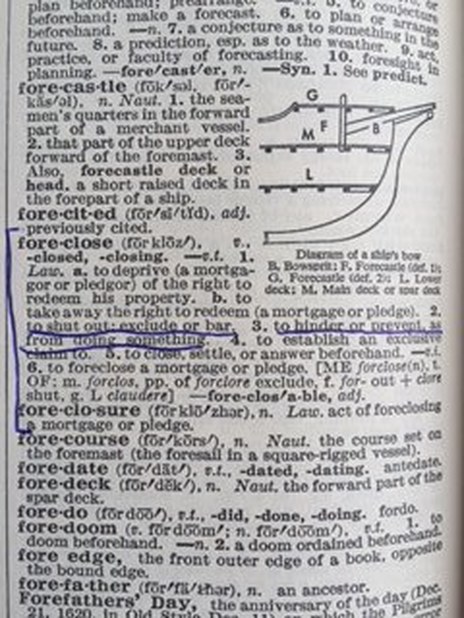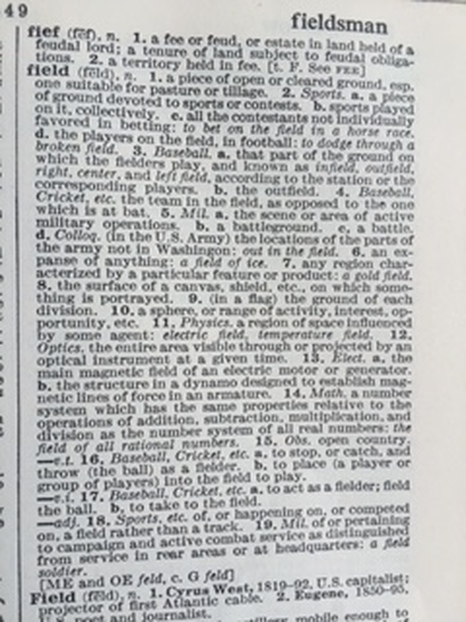|
I've tried to write my memoir more times than I like to admit, only to "destroy" what I've written. I'll remove one thread of one part of the story, hoping to improve the story overall, and the next thing I know the entire book has begun to unravel and I'm back at one of its various beginnings again: tectonic plates shifting, The Missoula Floods, the fire that burned my hometown down in 1889, The Thunderbird Motel Lounge where my parents met in 1975, my birth, my childhood home, my father’s announcement, in 2006, that he was “going into foreclosure.” The "Book Extra" file on my computer, weighing in today at 801 pages, 278,843 words, or 1,525,644 characters (with spaces) takes several minutes to fully load and is, as you might imagine, an utter disaster zone. But this diehard process of revision is not a new phenomenon. "Book Extra" is not the only document of its kind. Once, the summer before my final year in MFA school, which is where I initially began writing the book, I printed off a similar document, this one titled "The Whole Damn Thing," and though that document wasn't quite as long as "Book Extra," it took an uncomfortable amount of time to print. I printed "The Whole Damn Thing" as secretly as I could late at night (I didn't want to risk interrupting anyone else's printing needs). Driving the 500 pages home in a suitcase, I felt as though I'd just robbed a bank. The paper in the grad lab was "free" to students in the program, but that’s not to say I wasn’t, at least in part, the reason the Department Secretary began keeping it in a locked cupboard not long after that night. Some of what I'd written in "The Whole Damn Thing," a substantial chunk of which consisted of transcripts of VHS home videos from my childhood, remains in the current draft of my memoir, or, if it's not in the current draft, it’s likely been relocated to "Book Extra," so I haven't destroyed that prose entirely, and as for the pieces of paper upon which I printed "The Whole Damn Thing," I’ve since used them (the blank sides of them) when I've run out of printer paper for the most current drafts of the book, an effort I like to think pardons me from accusations about abusing or wasting resources, but the creation/destruction cycle has continued, nonetheless. While speaking about this with my husband recently, he said, “You’re Penelope,” by which he meant, or so he explained, that my writing process is not unlike that of The Odyssey’s Penelope as she weaves and un-weaves the robe. I told him Penelope was un-weaving by night the work she'd done by day in order to ward off suitors. She was waiting for Odysseus to return. I told him that, obviously, warding off suitors is not the motivation behind the destruction I practice (besides, he isn't away, fighting any war, but rather right beside me). He said the analogy stood. He said I must be warding off something: the possibility of rejection, perhaps, the possibility that what I'll work so hard to create won't be good enough in my eyes (if not in the eyes of others), that I'll fail. Penelope isn't a perfect analogy, in other words, but I can’t deny that my husband might have been onto something. Hence, perhaps, the "NO TURNING BACK" I've added to the file title of the current draft of my memoir. Though part of me wishes that this blogging I’ve begun were a platform to share installations of my memoir, especially seeing as how the immediacy of the blog genre lends to the momentum I'm trying to cultivate as a writer, one will have to wait to read the memoir in full upon its completion. Instead, this will, I think, be a place where I can share bits and pieces of the atmosphere the memoir inhabits, as well as where I will reflect upon the artistic process itself, upon the successes, or the milestones, as well as the struggles I face to reach them. This realization or statement of purpose is, perhaps, where the the field of foreclosure comes into play, for that field, as I have come to understand it, is a vast field that can be defined in several ways, and though I haven't literally entered a foreclosure (a repossessed home) in over a year, the "field" itself and the concept of foreclosure remain defining forces behind my writing. Here are the various definitions of foreclose (from a dictionary I found at a foreclosure): Here are the various definitions of field (from the same dictionary): With these definitions in mind, though also with a poetic license in my pocket, the field of foreclosure, namely as it pertains to my experiences working with my father and to my writing, might best be defined a place, first and foremost: it is the literal "field" that each of the towns my father and I traveled through when we were emptying and cleaning foreclosures might be said to have occupied. It is the "field" upon which each of the properties themselves stood/stand, and it is also those properties, homes of all shapes and sizes and in all imaginable varieties of neglect and disrepair. It is, in other words, the setting for my much of my writing. Relatedly, the field of foreclosure is a field of labor, too (an umbrella phrase to describe the work I did with my father in that field as place), as in "I once worked in the field of foreclosure cleanup and maintenance." More abstractly, the field of foreclosure is also a concept one might use as a means to characterize the aftermath of the mortgage crisis, which is, in part, what led to the origin of the kind of work my father and I did. It's a concept, in other words, one might use to describe the reality she's woken to when her dream of homeownership has failed and she's had to vacate (it is the realm of the "unknown" she's entered as a result). It's a concept another ought to be wary of, meanwhile, as she, too, dares to dream the same dream. Finally (for now), let's say the field of foreclosure is an interior landscape, too, a landscape (of the mind or heart) within which "lost" or discarded or otherwise compromised notions or beliefs or feelings (about any number of matters of import) lie about as surely as any tangible article of trash (or any treasure) I might have found in a foreclosed property. It's a kind of mental or emotional wasteland, you might say, and it’s also, in turn, the particular kind of cognitive or emotional work one must do in order to muck through such a wasteland, the kind of work that involves identifying the notions, beliefs, and feelings lying about and deciding which among them are salvageable and which, instead, to retire or throw away. Whenever I write about the field of foreclosure, I do so with all of these various meanings in mind, but the latter meanings are the ones that I believe are at the heart of this particular undertaking. Sure, I will probably use this website and this blog to share with you some of the personal effects I found while I was emptying and cleaning foreclosed homes, items in the bin I've labeled "Foreclosure's Lost & Found." I will probably also share with you details about the journey itself (where my father and I went, the conversations we had), but, mostly, I have come here to document the struggle to create, the struggle to make sense of where I've been, what I've seen, what I've found, and, finally, why all of the above matters to me, or, more importantly, perhaps, why it might matter to you. Sometimes, I worry that my dream to write anything of substance or of literary acclaim or merit might not be so unlike the dream of homeownership that so often leads to default and foreclosure. Sometimes, I worry I might be "writing beyond my means" or that my devotion to writing might mean sacrificing other things, such as relationships with friends, family, with my husband. Today, for example, I finally submitted an essay I've been working on (and with intensity) for five years. It was an essay about an encounter with a woman at a foreclosed property, among other things, and my father, who was on the phone with me when I sent the essay, had just finished proofreading and fact-checking it for what we both decided was the final time. Like it's happened so often with the memoir, I knew I was at a point where if I pulled one thread of the story, the whole thing would unravel, and, in this case, I simply couldn't bear the thought of having to start over again. But all that grueling work for what, I wonder? I suppose the answer to that question has yet to be determined, and I'm neither holding my breath nor hiding under a rock. Meanwhile, however, my husband was making dinner, tidying up our apartment, occupying the present moment, without me. Then I think about how the writing of women like Laura Ingalls Wilder was instrumental to her family life, namely how, in later years, the profits she made from her prose helped her and her husband to keep their home and their land (this needs fact checking and could use further elaboration, but to the best of my knowledge the gist of what I'm saying is accurate). This isn't Little House on the Prairie, of course (neither is my memoir or the essay I submitted today), and I'm no Laura Ingalls Wilder. But I like to think the impulse driving me to write is not so unlike that which inspired her or that, impulse aside, such hard work pays off more often than it leads to any kind of default or deficit, that sitting here, writing, I'm not putting myself at risk of losing everything so much as I am trying to hold onto it. Still, there's that hint of regret I feel for the time spent before my computer, for the millions, billions, trillions of characters my fingers have stamped upon the page, and sometimes only to destroy, in turn, what they've just spent all that time to create. Time spent is time lost, irretrievably so, even when it comes to writing. One might have something to show for it, but there's no borrowing against whatever that may be in order to retrieve what's been sacrificed to bring it into being. There's only hoping it was worth it, or that, if it wasn't, if you fail (or even if/when you succeed), the other things that matter to you and the people you love will still be there, where you left them last, if not someplace better, and that they will welcome you. With that, I'll say welcome (I suppose), if not to the field of foreclosure, than to notes written from it.
0 Comments
Your comment will be posted after it is approved.
Leave a Reply. |
S.J. DunningWriter, editor, SAHM of three, infertility advocate, pregnancy loss advocate, ex-ballerina, nostalgic, record-keeper, documentarian Archives
March 2024
|


 RSS Feed
RSS Feed